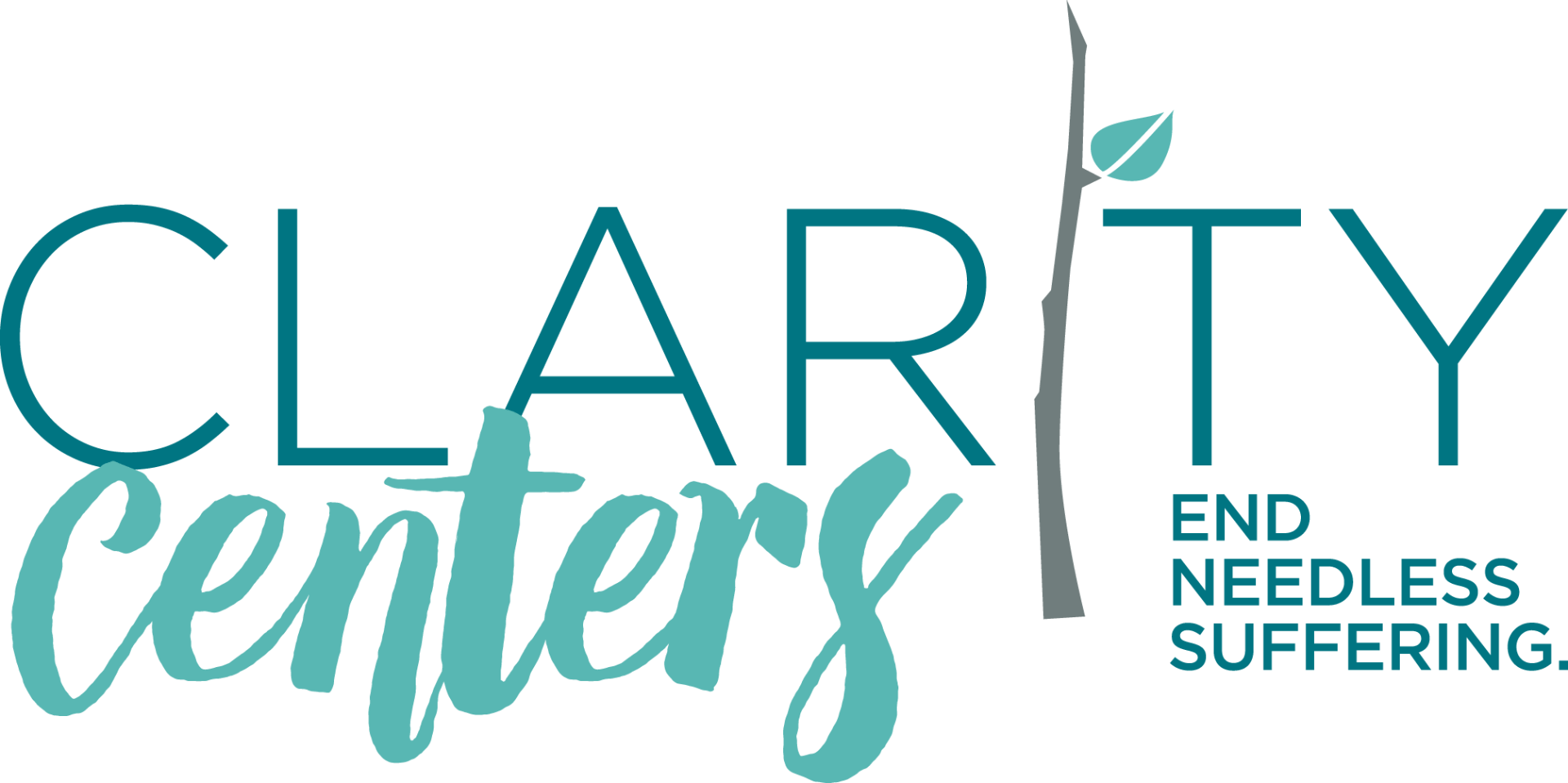Therapy for Depression
 Depression counseling in our Towson offices is now available to help you with your stress and mood disorders.
Depression counseling in our Towson offices is now available to help you with your stress and mood disorders.
We at Clarity Centers know that Depression is a real thing!
And, in this time of election questions, recounts, and political upheaval, it’s no wonder you are stressed out! You may feel like your home is a prison, and that your success is slipping out of your grip.
While we all feel sad, moody or low from time to time, some people experience these feelings intensely, for long periods of time (weeks, months or even years).
And, sometimes without any apparent reason. Depression is more than just a low mood – it’s a serious condition that affects your physical and mental health.
It’s not uncommon for people with depression to have physical signs of the condition. They may include joint pain, back pain, digestive problems, sleep trouble, and appetite changes.
THE SYMPTOM TREATMENT THAT OUR DEPRESSION COUNSELING INCLUDES:
- Feeling sad or experiencing a low mood
- Loss of interest/pleasure in things you once enjoyed
- Changes in appetite — weight loss or even weight gain that are unexpected or unplanned
- Trouble sleeping: either too much or too little
- Loss of energy or increased fatigue
- Increase in purposeless physical activity (for example, hand-wringing or pacing) or slowed movements and speech
- Feeling more regretful or guilty
- Trouble with your thinking, concentrating or making decisions
- Thoughts of death or suicide
Towson, MD, is known for a regional center with many types of Depression Counseling and Mood disorder interventions and treatment sources.
Clarity Centers is one such place, located in central Towson near the courthouse. For more information, call today at 410-853-7773, or email is at [email protected]. Check out our list of counselors to see who might best meet your needs.
ASK US ABOUT A FREE DEPRESSION SCREENING WHEN YOU CONTACT US.
WHAT CAUSES DEPRESSION?
While scientists have been studying depression for decades, we don’t know exactly what causes depression. However, a number of things are often linked to its development. Depression usually results from a combination of recent events and other longer-term or personal factors, rather than just one immediate issue or event. Our Depression Counseling team is skilled in identifying just what you need to get you going again.
CHANGES IN THE BRAIN
Depression is not simply the result of a ‘chemical imbalance’, for example because you have too much or not enough of a particular brain chemical. It’s complicated, and there are multiple causes of major depression. Factors such as genetic vulnerability, severe life stressors, and medical conditions can affect the way your brain regulates your moods.
Most modern antidepressants have an effect on your brain’s chemical transmitters (serotonin and noradrenaline), which relay messages between brain cells – this is thought to be how medications work for more severe depression. Psychological treatment can also help you to regulate your moods.
LIFE EVENTS AND WHY DEPRESSION COUNSELING HELPS
Research suggests that continuing difficulties – long-term unemployment, living in an abusive or uncaring relationship, long-term isolation or loneliness, prolonged work stress – are more likely to cause depression than recent life stresses. However, recent events (such as losing your job) or a combination of events can ‘trigger’ depression if you’re already at risk because of previous bad experiences or personal factors. Depression counseling can help with the stress, worry, and low mood you may be feeling.
PERSONAL FACTORS
- Family history – Depression can run in families and some people will be at an increased genetic risk. However, having a parent or close relative with depression doesn’t mean you’ll automatically have the same experience.
- Personality – Some people may be more at risk of depression because of their personality, particularly if they have a tendency to worry a lot, have low self-esteem, are perfectionists, are sensitive to personal criticism, or are self-critical and negative.
- Serious medical illness – The stress and worry of coping with a serious medical illness can lead to depression, especially if it is a long term condition, and/or chronic pain.
DOES TREATMENT REALLY WORK?
Research that has examined what psychotherapists do–whether they are social workers, counselors, or psychologists–show that most people experience improvements in their symptoms after 14-20 visits of counseling. Some research even shows that psychotherapy and counseling for depression is quicker and has longer term impact than psychiatric medications.
WHAT DO COUNSELORS AT CLARITY CENTERS IN TOWSON, MD, DO DIFFERENTLY?

Psychotherapy, or “talk therapy,” is sometimes used alone for treatment of mild depression; for moderate to severe depression, psychotherapy is often used in along with antidepressant medications. Cognitive behavioral therapy (CBT) has been found to be effective in treating depression. CBT helps a person to recognize distorted thinking and then change behaviors and thinking.
CALL US TODAY AT 410-853-7773, OR REACH OUT BY EMAIL AT [email protected]
Counselors at Clarity Centers in Towson, MD and in Hunt Valley, MD, use other methods for depression treatment as well:
- Attachment approaches help clients understand the power of close personal relationships to transform your outlook
- Couples and Family Therapy are methods to identify how depression is impacted by the stress of your family or marriage
- Interpersonal Neurobiology is a therapy method of using the power of the brain and nervous system to recover from significant stressors and traumas. The healing power of the therapeutic relationship is emphasized
- Solution Focused therapy allows for therapy to revolve around goal-setting, encouragement, and accountability
- Cognitive Behavioral Therapy helps you identify destructive thought patterns and create a plan to change/reform them.
- Dialectical Behavior Therapy is another cognitive-oriented approach designed to uncover more enduring thought patterns that show themselves in your relationships repetitively.
Psychotherapy may involve only the individual, but it can include others. For example, family or couples therapy can help address issues within these close relationships. Group therapy involves people with similar illnesses. Event Psychological Testing can help you identify what “makes you tick” so that you can focus on changes that matter most.
